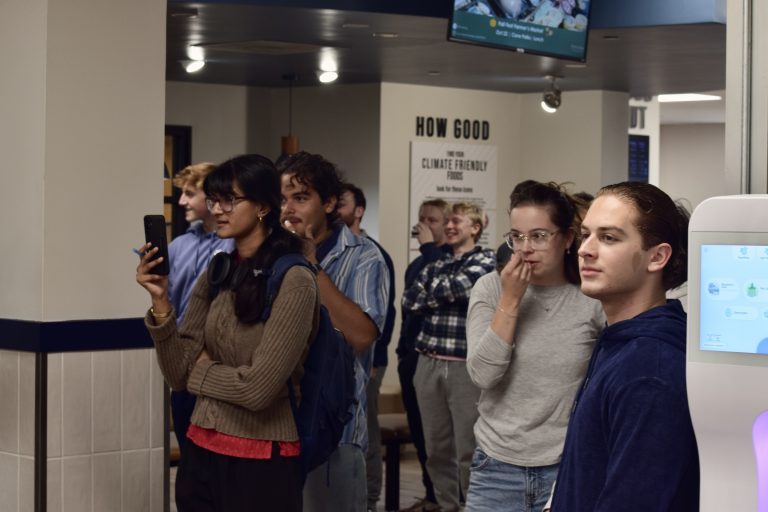Kat Namon ’22
Managing Editor
The faculty convened this afternoon to discuss a motion from the Curriculum Committee to allow an emergency academic plan to move forward in response to the COVID-19 emergency. Following a brief discussion, the motion was passed unanimously.
Despite uncertainty regarding the final decision concerning additional guidance on moving to remote instruction set to be released tomorrow, the meeting outlined curricular strategies for how to respond to the COVID situation. The Committee’s emergency academic framework offers guidance on several important issues for teaching courses remotely. The framework’s first provision ensures that the decision to continue remotely will ultimately be left to each individual faculty member. The course instructor will retain broad purview over the “content of the course and the assessment of the students.” Departments retain the rights to make decisions on which courses will count towards individual majors. The framework also ensures that adequate technical support is provided by the College and that “all students enrolled in the course have access to a computer” if remote education is necessary.
In the event that certain courses cannot be continued remotely, the Committee urges exceptions for graduating seniors. Specifically, the proposal would allow for several options to satisfy graduation requirements. The framework presents as solutions that “work done to the point of closure be considered sufficient for completing the course,” that some students be allowed to graduate “with fewer than 36 credits (but no less than 34.5 credits)” due to exigent circumstances, and that departments “consider waiving the required course” for those that may still be required for the major. In the event that no resolution can be found, the framework provides supports issuing a letter and working toward the prompt completion of the student’s degree.
The framework also encourages that, for underclassmen, the College “award an incomplete or allow the remaining work to be completed,” provide for the award of half credit for work completed, and that departments explore creative alternatives for all students. Further, the framework encourages some “flexibility in fulfilling major requirements” for juniors to ensure that they graduate without issue.
In addition to addressing remote learning or the suspension of off-campus courses, the framework also offers solutions for study abroad programs, including awarding credit for courses that have moved to a hybrid format and providing the Curriculum Committee with oversight over completing study abroad courses remotely. The proposal also allows flexibility on several points, including possible waivers of charges for coursework greater than 5.75 credits, that J-term and summer programs be used to make-up courses, and that the Curriculum Committee waive prohibitions on the transfer of community college credits for those who have more than 18 credits.
Chair of the Curriculum Committee Mitch Polin prefaced discussion of the motion by indicating that “as we all know, this is a quickly evolving situation and is changing more and more every day.” Polin continued, adding that “we don’t know now what an email will reveal tomorrow and not all of the details are going to be in this curricular plan.”
The framework is guided by four principles, among them ensuring the “primacy of the instructor” in the content and assessment of the course, upholding the authority of departments to determine what courses will satisfy their requirements for completion, ensuring that all students have access to resources, and limiting the scope of this emergency framework to the spring 2020 semester.
Certain faculty members came forward to voice opinions held across campus regarding concern about limiting the ability of students and faculty members from returning to campus. Professor of Engineering John Mertens urged that “decision-makers err on the side of caution in the other way, [at least] until we have someone tested positive [for COVID-19] on campus.” Mertens continued, adding that he hopes “decision-makers don’t overreact.”
Associate Professor of Political Science Reo Matsuzaki said “I would add that maximum flexibility be added so that students can return [to campus].” He continued, adding that “some students don’t have a home to return to, others who can return home, return to environments that are not conducive to learning.”
Matsuzaki encouraged, “flexibility so that students can use the library,” despite the ongoing uncertainty of the situation. Final decisions regarding the state of the College are expected to be announced tomorrow, and students should expect updates from individual professors on the status of their courses.








+ There are no comments
Add yours